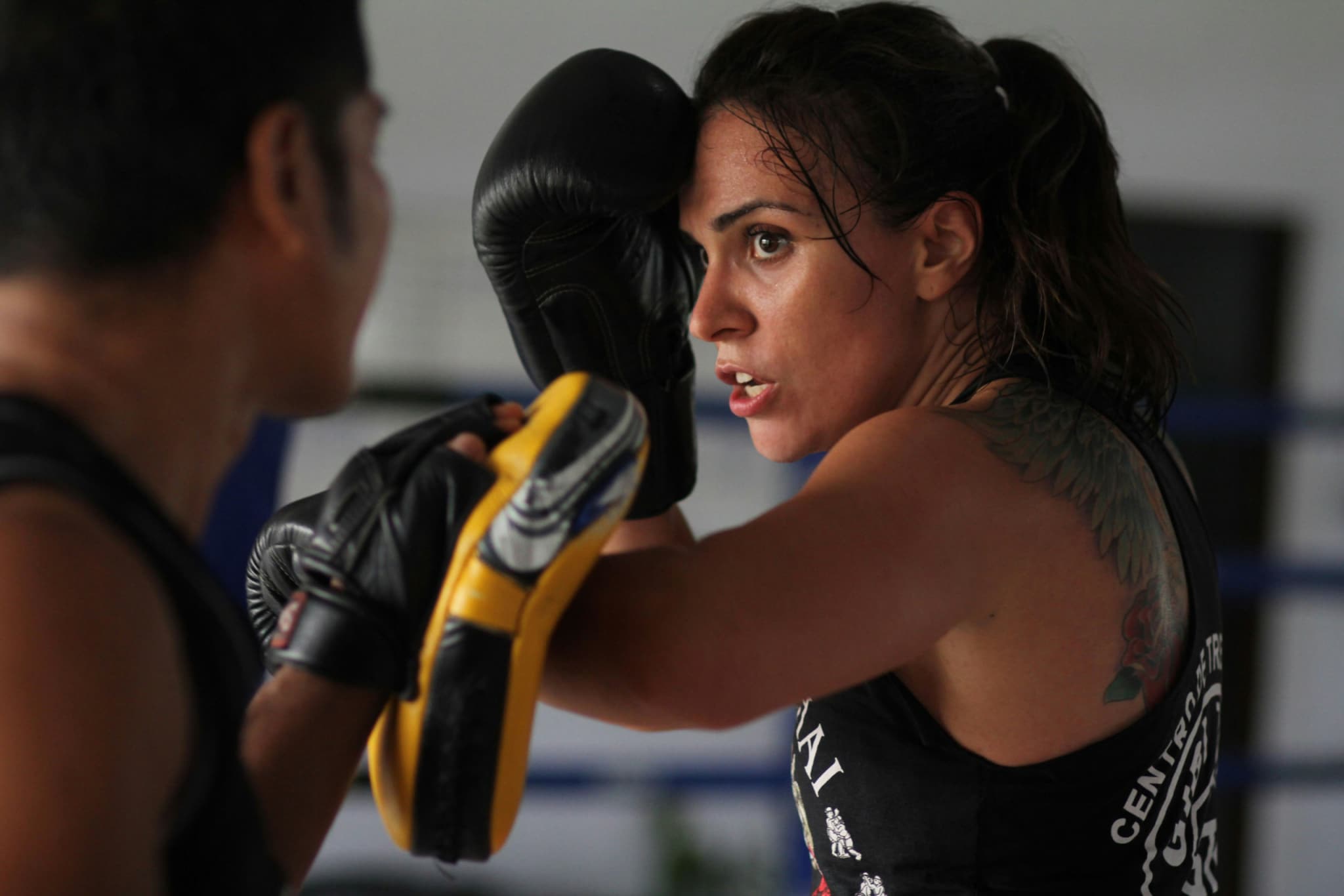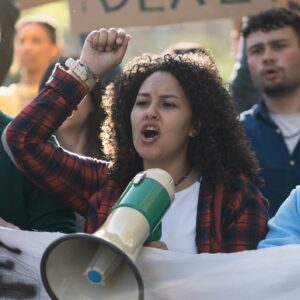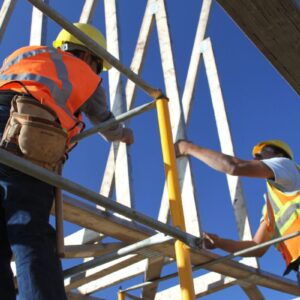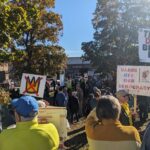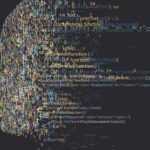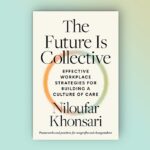
There is a terrible human toll to MAGA’s mischaracterization of autism.
When Zoe Gross, the director of advocacy at the Autistic Self Advocacy Network (ASAN), talks about autism, she doesn’t describe an epidemic or blame Tylenol or other environmental factors. These are not perspectives shared by those who actually work with and advocate for autistic people. By contrast, it is very much the approach of President Donald Trump and his administration, led by the Secretary of Health and Human Services (HHS) Robert F. Kennedy Jr.
Gross talked to NPQ about the tremendous human suffering that will be the inevitable result of Trump administration policies and budget cuts, and how nonprofits can step up to mitigate the harm.
In fact, there are limits to what nonprofits can do, and Gross’s words had a foreboding ring.
“Services like personal care assistance or home nursing provided through Medicaid cannot be easily supplied by most nonprofits,” Gross said. “Nonprofits that do provide these services would have to get funding from somewhere in order to do so, and in the United States that funding usually comes from Medicaid.”
What’s at Stake?
Due to the passage of Trump-backed budget legislation in July, an estimated $911 billion will be cut from Medicaid over the next decade. Medicaid provides services to groups that require unique accommodations, and this includes autistic people, who make up one out of 31 children and one out of 45 adults in the United States.
“While nonprofits may provide small grants to autistic people in financial need, many are not equipped to handle the expense of direct services without government funding,” Gross said. “The Autistic People of Color Fund, for example, provides grants up to $500, which might only cover a few days of supports (depending on someone’s support needs and their support provider’s rate of pay). We fought so fiercely for Medicaid because it is irreplaceable. Nonprofits cannot make up the difference.”
As a person on the autism spectrum myself, I can confidently say that without the assistance of allies like sympathetic nonprofits, millions will struggle to survive.
Not a Disease
To grasp how Trump is failing the autism community, some basic knowledge of the science of autism and neurodiversity is required.
Autism is innate, and, as the British National Health Service observes, no more of a disease than any other atypical neurological condition, such as ADHD or dyslexia. Indeed, the term “neurodiversity” exists for both scientists and laypeople alike, as a catchall for the vast range of neurological differences against which “neurotypical” people discriminate, including autism, ADHD, dyslexia, and dyscalculia.
“Making it clear that stigma and inaccurate information is very real and combating it also is a good way to engage with the community.”
Advocates for neurodivergent people recognize that our ways of being should not be pathologized but rather respected and, when necessary, accommodated.
Psychologist Catherine Lord, a renowned neurodiversity researcher and a member of the International Advisory Board for The Lancet Psychiatry, concurred, telling NPQ that “the attempt to prevent or cure autism is misguided because the factors that limit the lives of autistic people are not so much the autism as other issues such as mental health and other disabilities.”
In short, any effort to support autistic and other neurodivergent people must start by building on these scientific facts.
“Misinformation and disinformation is tough,” Haley Moss, an autism advocate, told NPQ. Moss is the first openly autistic female lawyer in Florida’s history. “Community nonprofits are often some of the first resources people find when looking for information about autism and neurodiversity, and having accurate, accessible education (and myth busting) readily available on websites and in other materials and services is important.”
She added, “I can’t say how many people believe the misinformation and disinformation around autism, but making it clear that stigma and inaccurate information is very real and combating it also is a good way to engage within the community and the people these organizations are serving.”
“The most effective organizations will be the ones that center lived experience, pool resources, and push for systemic change rather than piecemeal programs.”
Creative Approaches Needed
To display strength on behalf of autistic people, and against MAGA, nonprofits must “double down on collaboration and creativity,” according to Becca Lory Hector, editor of Neurodiversity Newsstand and an autistic mentor, speaker, researcher, author, and consultant.
Hector noted to NPQ that “funding cuts don’t erase the needs of autistic and neurodivergent people; they magnify them.”
She added, “The most effective organizations will be the ones that center lived experience, pool resources, and push for systemic change rather than piecemeal programs. And this isn’t just about autism nonprofits. Autistic people are part of every stakeholder group. We are aging, we are LGBTQIA, we are BIPOC, we are Disabled, we are workers and families.” Hector’s argument is, fundamentally, one of basic arithmetic.
“When marginalized groups come together, our numbers are huge. That collective strength is how we stop competing for crumbs and start reshaping the system,” she concluded.
How Nonprofits Can Intervene
When neurodivergent people like autists face discrimination, nonprofit allies must believe their stories, counter the Trump administration’s lies, and, when able, provide resources.
“The government is putting out an unprecedented amount of misinformation about autism at the highest levels,” Gross told NPQ. “[ASAN] has had to work hard to provide public education about what real science can—and can’t—tell us about autism. This includes providing accurate information about vaccine safety and attempting to counteract fearmongering from HHS, which now promotes fraudulent conspiracy theories about the cause of autism.”
When neurodivergent people like autists face discrimination, nonprofit allies must believe their stories, counter the Trump administration’s lies, and, when able, provide resources.
Hector herself emphasized the vital role nonprofits can play in helping stop the spread of harmful falsehoods.
“Every time misinformation spreads from a high-profile official, autistic people pay the price in stigma, bias, and ableism,” Hector said. “Nonprofits can’t afford to stay silent. They must be rapid responders, amplifying accurate science and lived experience. And because autistics are everywhere, this isn’t a fight for one small nonprofit sector, but a fight for all nonprofit sectors.”
Nothing About Us Without Us
Nonprofits must also include autistic people in key leadership roles. The old saying, “Nothing about us without us,” exists for good reason.
“Have more autistic people involved in nonprofit leadership,” Moss said. “It’s one thing to say things online about inclusion, and another for neurodivergent and autistic people to say there are no people with lived experience involved in decision-making. I am often critical of autism organizations that don’t have autistic people involved in key decisions, but [do have] all other community stakeholders such as parents, researchers, family members, siblings, caregivers, employers.”
In addition to urging autistic people to volunteer, Moss argued that nonprofits should “recruit more autistic and neurodivergent perspectives to serve on the board or who are gainfully employed in your organization. Our passion is unifying and amplifies missions to bring services and education to communities big and small.”
What Comes Next?
Until federal policy again acts with empathy toward neurodivergent people such as those in the autistic community, nonprofits like ASAN will likely have to fill the void.
Advocacy at the state and local levels might be possible in some communities. “While the federal government is currently quite hostile to the disability community, there are a lot of critical opportunities for autistic people in the United States to advocate for ourselves, for disability rights, and for public health at the state level,” Gross argued, noting how California, Oregon, Washington, and Hawaii are adopting their own evidence-based vaccine recommendations by forming the West Coast Health Alliance.
Additionally, Gross said, “We can encourage our states to preserve Medicaid services to the greatest extent possible and to protect the rights of transgender people to access healthcare and education and live free from discrimination. This is an issue that’s very relevant to autistic people because of the significant overlap between the autistic and transgender communities.”
Lord, for her part, emphasized the need to rethink federal policy entirely in the long term: “RFK Jr. and others have completely missed the point that there is now so much we can do to support the development and lives of autistic children and adults and their families. Figuring out how to do these things and make these opportunities accessible to everyone who needs them,” she insisted, “would be a far better way to spend our time and money.”
